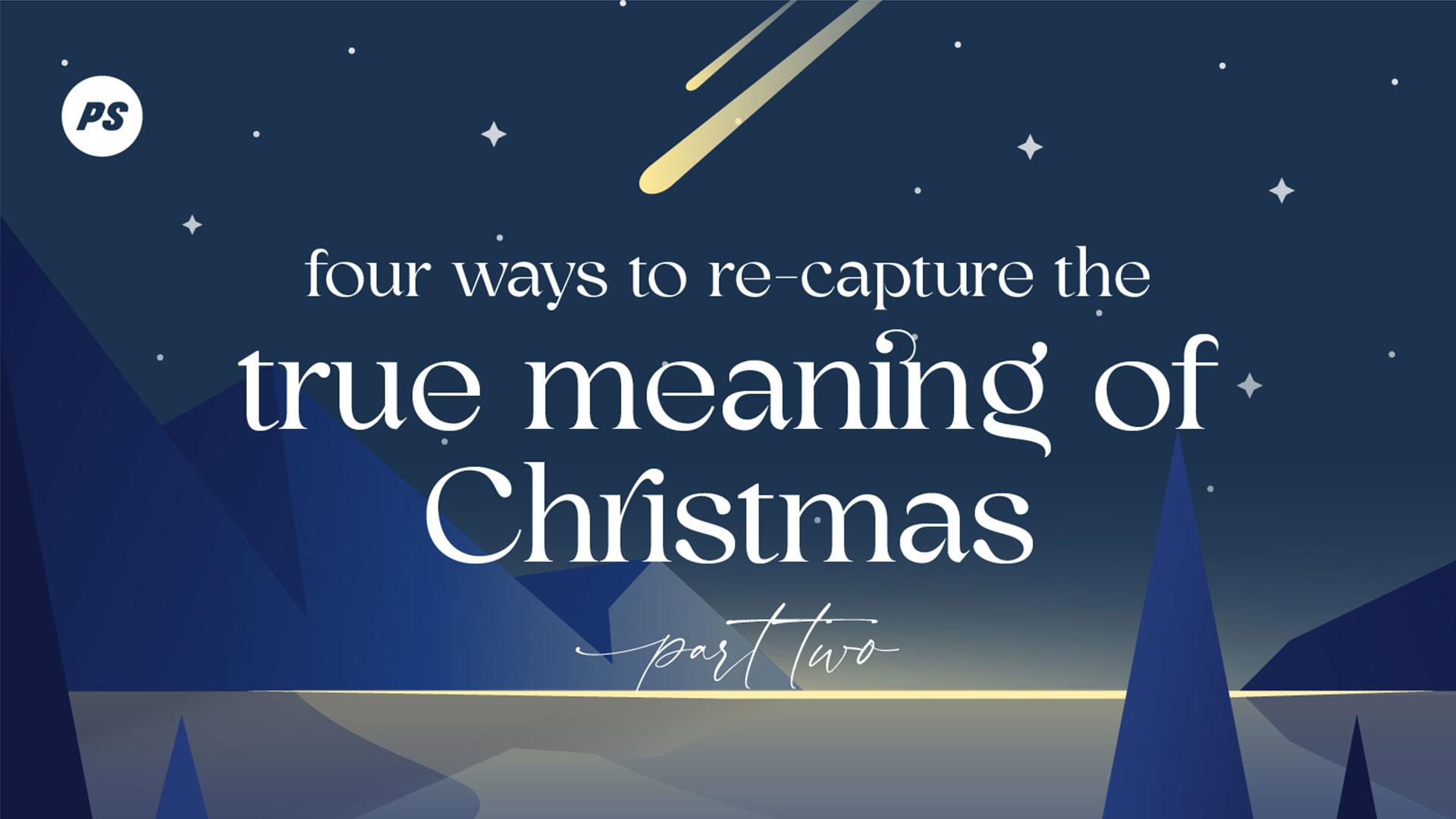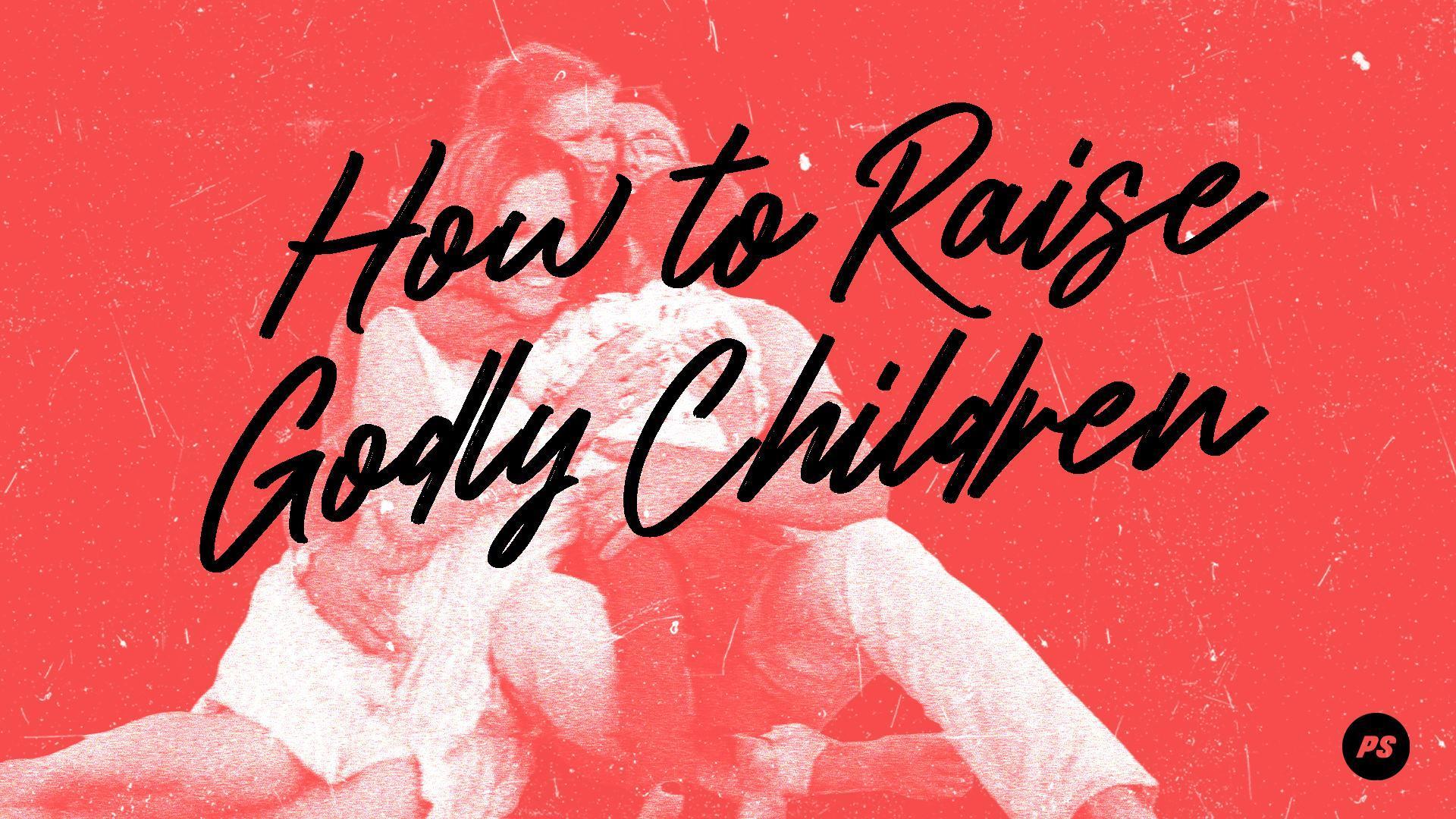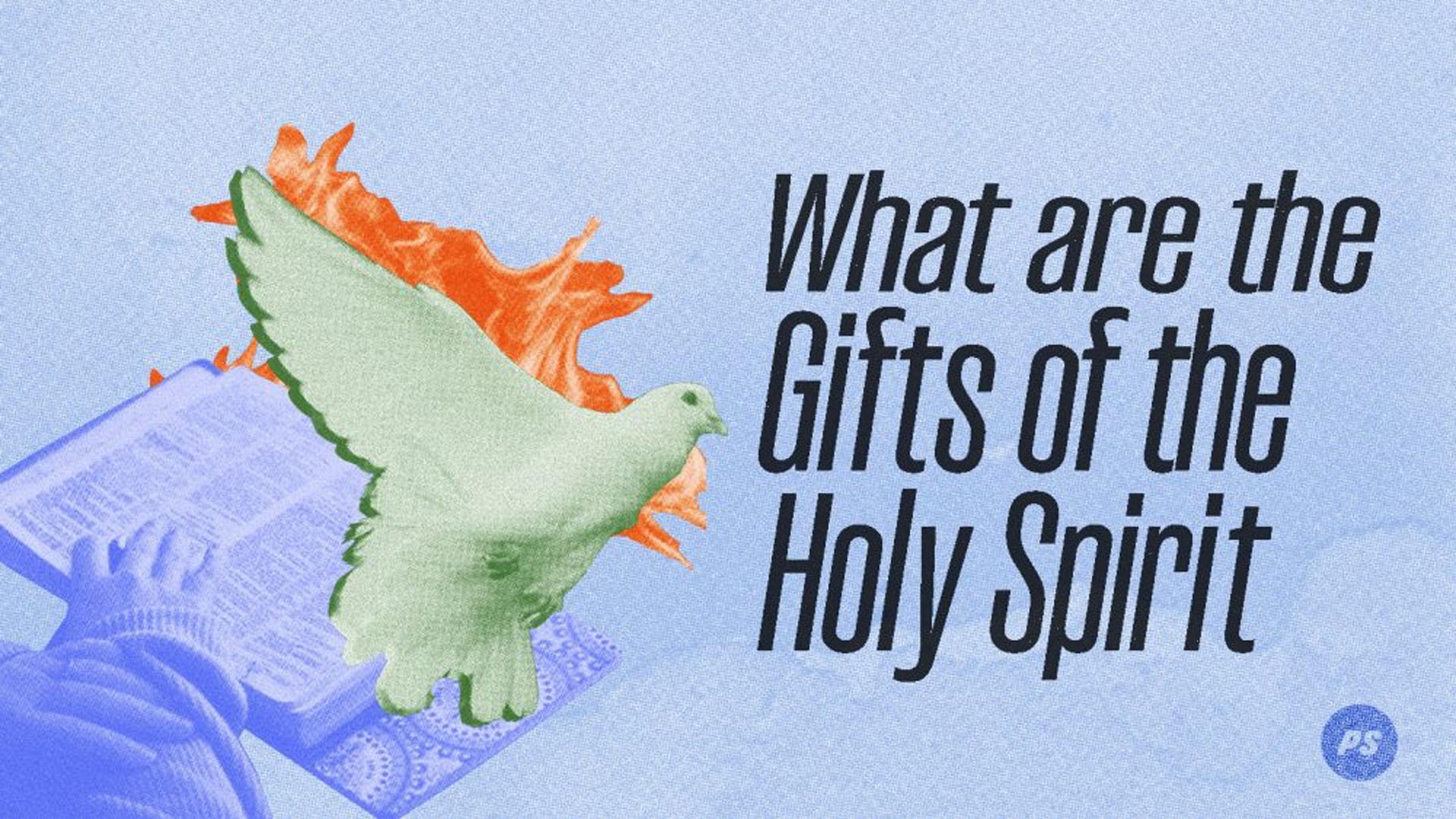In my previous post, 4 Ways to Re-capture the True Meaning of Christmas: Part 1, we began investigating some of the clues found in the original story of Jesus’ birth as to how we can break free of some of the entrapments of modern-day celebrations and return to the simplicity of the very first Christmas. We began with the challenge to restore rightful focus on the One we are actually celebrating—Jesus Himself.
Let’s continue our investigation now with the second way that we can recapture the true meaning of Christmas.
2. Generous Hospitality
Do not forget to show hospitality to strangers, for by so doing some people have shown hospitality to angels without knowing it.
At the heart of every Christ-centred Christmas is an authentic heart of hospitality.
The biblical definition of hospitality stretches beyond providing food for people. In the Bible, God commands His people to practice hospitality—meaning: ‘the love of strangers’. They were required to care for any stranger passing through their town who needed a place to sleep and a warm meal. God went as far as to remind His people that they themselves were once strangers in Egypt, longing for home and in need of a stranger’s kindness.
The stranger who dwells among you shall be to you as one born among you, and you shall love him as yourself; for you were strangers in the land of Egypt: I am the Lord your God.
For some, it comes naturally to gather people who might otherwise not have anyone to celebrate with, to join in their family Christmas celebrations. But for most of us, the idea is not an easy one. Bringing non-family into our celebrations can add even more stress to an already stressful day, may cost us more and could irritate other family members who do not wish to feel any ‘awkwardness’ on such an occasion. However, if we desire to return to the true meaning of Christmas, embracing vulnerable people and making them feel like family is vital. We are never more Christ-like than when we pull down fences, reach out to others and share what we have been blessed with.
If we desire to return to the true meaning of Christmas, embracing vulnerable people and making them feel like family is vital. We are never more Christ-like than when we pull down fences, reach out to others and share what we have been blessed with.
We can never truly communicate value to someone without exerting effort. Authentic love is always inconvenient, messy and costly.
God’s ultimate message to His children when He sent His beloved Son as a gift was, “You are invaluable to me and well worth the effort exerted, the price paid and any mess that may follow”
As you begin to plan your Christmas celebrations, take a moment to imagine the simple but beautiful scene around the manger as strangers became friends in the Presence of King Jesus. I especially love the diversity represented around this first gathering—wealthy and important ‘wise men’ rubbing shoulders with simple shepherds. What united them outweighed what might otherwise have divided them. What a beautiful picture of what God desires for us as Christians, as we aspire to live a life that is counter to the culture of the divided societies in which we live.
Why not ask the Holy Spirit who He would like you to reach out to this Christmas and experience for yourself the real joy of being others-focussed. Ultimately, in loving others, we are actually loving God.
And the King will answer them, ‘Don’t you know? When you cared for one of the least of these, my little ones, my true brothers and sisters, you demonstrated love for me.
3. Intentional Reconciliation
Glory to God in the highest, and on earth peace, goodwill toward men!
These are not just the words of a Christmas carol, but ones that have profound relevance to us today!
As the angels heralded the arrival of Jesus, they made the following declaration over mankind—a promise that His life would usher in peace and goodwill on the Earth. When we study these two words, we begin to get a picture of how God intended our lives to be upon embracing Jesus as our Lord and Saviour:
Peace means ‘harmony between individuals, security, safety, prosperity, quietness and rest’.
Good will means ‘kind-intent, well-meaning, benevolence, pleasure, delight and satisfaction’
I wonder how many of us can honestly say that these are the relational dynamics that we experience at Christmas time. While it is easy to feel genuine love and good-will towards those whose company we enjoy, what about those others whom we are obligated to connect with but offer no joy. What about that family member we are estranged with, that wayward and rebellious child or that difficult work colleague who we are forced to buy a ‘Secret-Santa’ gift for?
For most of us, our attitude towards tricky relationships at Christmas results in one of two responses:
Avoid them altogether or Play the game, put on the show and count down the minutes until it is all over and we can go on with our lives separately once again.
There is a third, much more confronting and costly option that we often don’t want to hear. It’s called RECONCILIATION and is the very reason we celebrate the birth of Jesus at all! Without diminishing the hurt and pain caused by difficult and abusive relationships where clearly defined boundaries are required, can I encourage you to keep a short list of offenses in your heart and open yourself up to the possibility that broken relationships can and should be restored.
More than any other time of the year, Christmas offers us both the opportunity and excuse to draw nearer to the difficult people in our lives and either forgive them or make amends—depending on what side of the line we find ourselves. Let’s face it, this is a difficult ask sometimes and can be a very one-way street, but there will never be a more appropriate birthday gift to give Jesus in return for His great sacrifice, than to intentionally seek reconciliation and exercise forgiveness and love — especially towards those who have hurt us.
There will never be a more appropriate birthday gift to give Jesus in return for His great sacrifice, than to intentionally seek reconciliation and exercise forgiveness and love — especially towards those who have hurt us.
God Himself responded to His own wounded heart by reaching out to His unfaithful and rebellious children and offering them absolute forgiveness, reconciliation with Him and full restoration of their privileges as children of a King. Not everyone accepts His generous gesture, but for those of us who have experienced the joy of cancelled-out guilt and shame, and have received the unconditional care and compassion of a devoted heavenly Father, the very least we can do in response is to follow His lead and represent His nature on Earth by reaching out and forgiving others.
In the lead up to this coming Christmas season, why not carefully examine your own heart and see what unforgiveness, judgement, and offence you have been harbouring against others. Ask the Holy Spirit to help you, and commit yourself to expressing genuine forgiveness and love. It does not have to involve great acts of pomp and ceremony, but just seeking out simple keys to unlocking another person’s heart and making them feel secure in their relationship with you.
My mother died on Christmas Day 2002. In the days leading up to her death, she reached out and took my hand, told me she was so proud of me, and thanked me for being a wonderful daughter. At first, I was shocked and uncomfortable, having never had such an intimate and vulnerable moment with her before. Coming from an abused background, she had not learned how to show affection and was sparing with her words of affirmation. I knew how difficult, awkward, and costly that moment must have been for her, yet she did it in order that I would truly know how she felt about me before she left to be with Jesus. It was a powerful and healing moment, and I was able to respond with equal gratitude and affection. As a result, I was able to let her go, without any regrets or unspoken sentiments.
Let’s not wait until we are on our deathbeds to reconcile with our loved ones or communicate our love and appreciation for the people that we live with, work with, and do church with. You never know how much they may need to hear the words you have to say, and let’s face it, the emotion-soaked atmosphere of Christmas provides us with a good head-start for these kinds of emotional but necessary conversations!
4. Authentic Giving
Finally, the simple but profound occasion of Jesus’ birth shows us that love and giving are never far away from each other.
Buying Christmas gifts can be a nightmare. It takes a huge commitment of time, energy and money to buy gifts for everyone we want to, not to mention all of the gifts that we purchase out of sheer obligation or people-pleasing.
When the wise men come to visit baby Jesus bearing very expensive gifts fit for a king, there is no mention of obligation. It is clear that these gifts were given of their free-will, out of genuine desire to express honour for the recipient of their gifts.
Biblical honour means to give weight to something or someone, and is the substance that binds together the Kingdom of God. One of the ways that we communicate genuine honour and value is by generously giving to others. It is not the monetary value of the gift that matters, but the fact that it was given in love and thoughtfully chosen with the recipient in mind. So if we communicate value through our effort and sacrifice, the opposite is also true. A lack of effort and personal sacrifice can communicate more than giving nothing at all. Likewise, buying expensive gifts for someone because we have an agenda or are seeking reciprocation, are sure-fire ways to strip the joy and authenticity out of the Christmas experience.
When my son was a little boy, he opened a gift from an extended family member who had very obviously chosen something from the ‘sale rack’ that didn’t remotely appeal to his age, gender or personality. I was shocked when he became very distressed and was able to articulate that the family member who gave it obviously didn’t care about him. In the end, it wasn’t about the gift itself, but the way it made him feel that lingered on years later and adversely affected their ongoing relationship.
For God so loved the world that He gave His only begotten Son, that whoever believes in Him should not perish but have everlasting life.
This scripture makes God’s motive for sending the gift of Jesus, abundantly clear. Driven by love, He gave something that cost Him everything to communicate worth and value to the human race—all the while knowing that the gift would be rejected by many. Unlike any gift that will ever appear under our Christmas trees, the gift of Jesus has always been and will always be PERFECT for every human being at any stage of their lives. He is the gift that keeps on giving!
Any motivation for giving gifts at Christmas or any time, that isn’t genuine love and an authentic desire to communicate value, has no place in the pursuit of the true meaning of Christmas.
Any motivation for giving gifts at Christmas or any time, that isn’t genuine love and an authentic desire to communicate value, has no place in the pursuit of the true meaning of Christmas.
It isn’t easy to break free from dysfunctional patterns of gift-giving that have been established over long periods of time, but perhaps it’s time to do that right now. Simply ask yourself, “Why am I giving this gift to this person?”. If the answer is any more complex than, ‘because I want them to know that I love and value them”, then it's time to re-evaluate. Let’s do away with obligation or agenda-driven giving and focus instead on re-establishing a pattern of authentic love. No one wants a gift that the giver gives reluctantly. No one wants a gift that the giver has re-gifted or picked up from the petrol station on the way to see you. A generous and thoughtful gift is powerful in unlocking a person’s heart, but should never send us into crippling debt. If we are buying gifts to win favour, impress people or to create opportunity, then it will never add to the experience of Christmas.
A tiny, squishy, sticky baby boy wrapped in rags may not have been the ‘popular-gift’ of the day, but would prove to be the most precious and personal gift any human could have ever hoped to receive. Let’s follow God’s example and add love, thoughtfulness, intentionality, and sacrifice to every gift we give this Christmas.
Conclusion:
Christmas is a time where powerful emotions are felt and expressed. Existing problems can be amplified, losses felt more deeply, and conflict stirred up like the embers of a campfire. On the other hand, it is a precious opportunity to join with the wider community in pulling down the walls that divide and finding the things that unite. It is the ultimate excuse to communicate our appreciation and love for people and to exert the kind of effort that fills their emotional tank in preparation for the year that lies ahead.
It is true that commercialism and self-centeredness have ambushed Christmas and made it something that it was never intended to be, but we still have the power to CHOOSE whether or not we will buy into the chaos and how we will celebrate the birthday of our precious King. Maybe this is the year that we refuse to jump on the merry-go-round of chaos, debt, and stress and instead, find our direction and inspiration from the first little gathering in Bethlehem.
It’s worth thinking about.
Joy to the World!
More post from General





